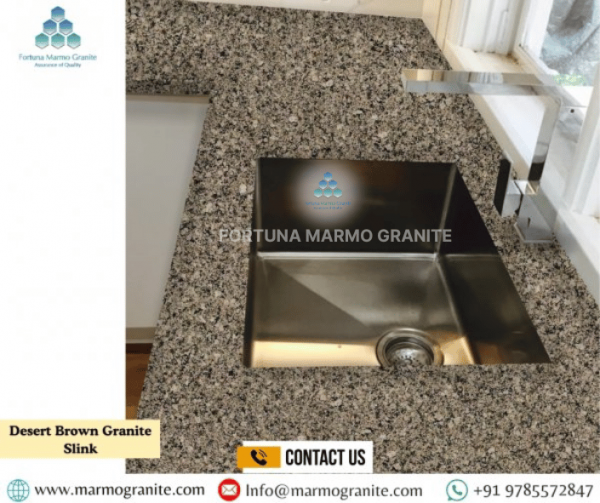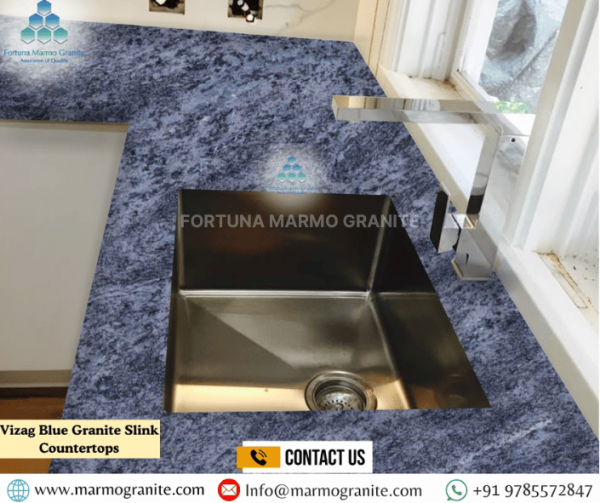Essential Guide to Importing Granite Sinks: What You Need to Know
When it comes to kitchen or bathroom renovations, granite sinks have become an increasingly popular choice among homeowners and businesses alike. are known for their stunning beauty, durability, and resistance to scratches and stains. They combine practicality with luxury, making them a popular choice for modern homes and commercial spaces. However, importing granite sinks can feel complex, especially if you're new to international trade and logistics. In this guide, we'll explain the key factors you need to consider—from assessing quality standards to managing logistics—so you can import granite sinks smoothly and confidently.


Why Granite Sinks?
Granite sinks are highly valued for their durability and elegant appearance. Unlike materials such as stainless steel or ceramic, granite naturally resists scratches, stains, and heat. This makes it an excellent choice for busy kitchens and bathrooms. The stone's strength and easy maintenance ensure long-lasting performance.
Moreover, granite sinks come in a wide range of finishes and colors, making it easy to match any design style. Their timeless appeal adds a touch of luxury to every space.
However, before importing granite sinks, it's important to understand certain key factors. Careful planning ensures that you receive the best quality product for your investment. Let's explore the essential steps and considerations involved in the importing process.
1. Choose a Reliable Supplier
The first step in importing granite sinks is to choose a reliable supplier. Whether you're purchasing in bulk for your business or a single sink for your home, always work with a trusted and experienced exporter. Reliable suppliers with strong expertise in granite exports understand every aspect of international trade. They efficiently manage shipping regulations, maintain strict quality control, and handle customs procedures, ensuring a smooth and hassle-free import process.
Do thorough research before making your final decision. Choose suppliers who provide competitive prices, reliable service, and a strong reputation in exporting granite sinks. Check online reviews and ask for client references to confirm their reliability. Additionally, explore industry forums where customers share real experiences with different suppliers.
Moreover, experienced suppliers with years in the industry usually have strong partnerships with manufacturers. These connections help maintain consistent quality control and ensure smooth export operations.
2. Understanding the Quality of Granite
Stone Grade:
Granite sinks are available in various grades, from commercial to premium quality. Premium-grade granite sinks have fewer imperfections, a finer polish, and greater durability than lower-grade options. When purchasing, always ask about the stone grade and confirm that it meets your quality expectations.
Finish and Polish:
The finish of a granite sink defines its overall look and texture. You can choose from polished, honed, or matte finishes, each offering a unique appearance and level of maintenance. Before buying, consider which finish best matches your design preferences and cleaning routine to ensure long-lasting beauty.
Thickness:
The thickness of a granite sink directly impacts its durability. Thicker sinks offer greater strength and better resistance to impact, while thinner ones are more prone to damage. Always ensure the granite sink you import matches the required thickness for your specific application.
Origin:
The origin of the granite plays a key role in its overall quality. Countries like India and Brazil are renowned for producing high-grade granite, while other regions may follow less strict quality standards. Research the source of your granite sink carefully to ensure it meets your durability and performance expectations.
3. Check Compliance with Local Regulations
Certification and Compliance:
Many countries require certifications for stone products to verify their source, quality, and environmental impact. Ensure your granite sinks comply with health and safety standards, including restrictions on harmful chemicals. Obtain all required certifications before importing to prevent delays or penalties.
Packaging and Labeling:
Proper packaging and labeling are vital for smooth customs clearance. Confirm that each shipment clearly includes the manufacturer's details, country of origin, and material specifications. Work closely with your supplier to ensure compliance with all packaging and labeling regulations.
Import Duty and Taxes:
Be prepared to pay the necessary import duties or taxes. These rates vary depending on the type and value of the granite sinks you're importing. Always check with your local customs authority to confirm the applicable fees and avoid unexpected costs.
4. Understand Shipping and Logistics
- Shipping Method: Granite sinks are heavy, and shipping costs can add up quickly. You'll need to decide whether to use air, sea, or land shipping based on the destination and time constraints. Sea freight is usually the most economical option, but it may take longer than air shipping.
- Packaging: Granite sinks need to be packaged securely to avoid damage during transit. Professional suppliers will typically ensure that the sinks are packed in crates with adequate padding and protection. You'll need to confirm that your supplier uses proper packaging to ensure safe delivery.
- Insurance: Given the high value and delicate nature of granite sinks, it's a good idea to insure your shipment against potential damage. This may involve additional costs but offers peace of mind, especially if you're importing large quantities of sinks.
- Lead Times: Depending on where the granite sinks are being shipped from and your location, shipping times can vary. Be sure to communicate with your supplier about estimated lead times, as well as any potential delays that could affect delivery.
5. Installation and Maintenance
Once your granite sink arrives, it's time to plan for installation and maintenance. Because granite sinks are heavier than traditional ones, they often need extra support. Therefore, it's best to hire a professional plumber or contractor with experience in stone sink installation. This ensures proper placement, sealing, and long-term durability.
Granite sinks need simple maintenance to stay in excellent condition. Although granite naturally resists stains and scratches, applying a sealer adds extra protection. Moreover, regular cleaning with mild soap and water helps maintain its shine. Avoid harsh chemicals or abrasive pads, as they can dull or damage the surface over time.
Conclusion
Importing granite sinks becomes a smooth and rewarding experience when you approach it with the right preparation and understanding. Start by choosing a trusted supplier, learning about granite quality, and staying informed about shipping logistics and local regulations. Each of these steps helps ensure that your investment delivers lasting value.

